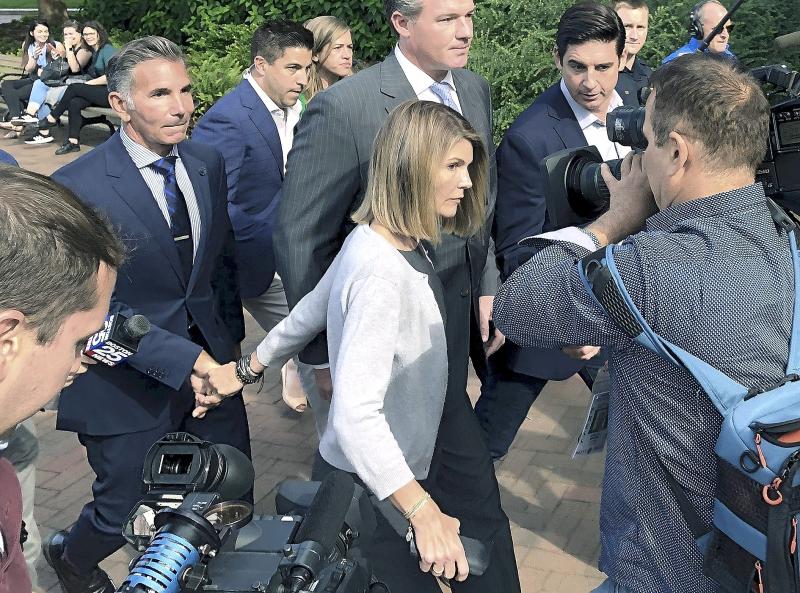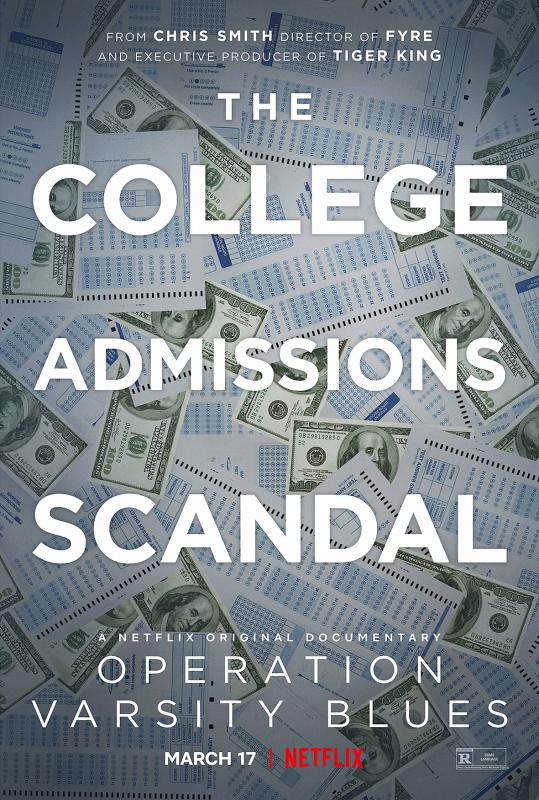Chris Smith didn’t initially think the 2019 college bribery scandal made for a good documentary subject. He was editing Fyre, the hit Netflix documentary about the music-festival fiasco, when his longtime collaborator, Jon Karmen, suggested another real tale of fraud and spectacle be their next film.
“I didn’t see it at all,” said Smith in a recent interview. “I thought it was well covered.”
But like so many American scandals, there were deeper, less-widely understood layers to the college admissions media storm. Everyone knows about the celebrity mothers — Lori Laughlin and Felicity Huffman — who went to jail for using bribes to secure their children’s places at elite universities. But what about William “Rick” Singer, the mysterious orchestrator of the scheme?

Photo: AP
“Rick still felt like an enigma to me,” said Smith. “And the actual machinations and details of how this scheme actually worked, I didn’t understand.”
Just as the failed Fyre festival was a window into the farcical world of social media influencers, the college bribery scandal revealed more widespread rot in higher education. By shifting the focus, Smith’s Operation Varsity Blues: The College Admission Scandal, which debuted Wednesday on Netflix, attempts to reorient center stage in a headline-grabbing drama that has already spawned one Lifetime movie.
The documentary, like the scandal, has a dose of Hollywood. Smith uses a hybrid approach that includes familiar non-fiction techniques like talking heads, but it also uses reenactments drawn from the Department of Justice’s transcripts and wiretaps. Matthew Modine plays Singer, a former college counselor who created what he called a “side door” to college admission that helped wealthy parents get their kids into top colleges like Stanford, Yale and the University of Southern California by bribing coaches, cheating on tests and falsifying student biographies.

Photo: AP
“Felicity Huffman is a colleague and I know her husband. My daughter worked for a couple of seasons on Shameless. I just felt bad for them,” says Modine. “As a parent — I’ve got two children that went to college — we all want to do what’s best for our children to help them get a leg up. But not to this point, to the point of fraud.”
Karmen, who wrote the documentary, focused on the FBI’s 204-page affidavit. He and Smith used the taped phone conversations and e-mails to script scenes that show how Singer operated, and how parents hooked into a scheme that in the high-priced, ultra-competitive world of top-tier colleges, didn’t seem so far-fetched.
“Not a lot of people have the time to read through a 200-page affidavit. Part of our job as filmmakers is to take all of this information and distill it into a format that can be easily consumed,” says Smith. “Absent many people wanting to go on camera, the wiretap transcripts were the best lens into that world.”

Photo: AP
You won’t see in Operation Varsity Blues — the title comes from federal prosecutors’ name for the scheme — any teary apologies, confessions of guilt, parent-child interviews or college officials pledging to eradicate the influence of money from the admissions process. While many of the more than 50 people charged — including Laughlin and Huffman — have already served their prison terms, some are still awaiting sentencing. Among them is Singer, who pleaded guilty to four felony charges in 2019 and who cooperated with investigators in gathering evidence against his clients.
“We reached to anyone and everyone that we could that was related to the story,” says Smith. “One of the only people that got back to us was John Vandemoer.”
Vandemoer, a Stanford University sailing coach, was the first person sentenced in the scandal. He was given one day in prison, with time served, and a fine of US$10,000. Stanford fired him.
But Vandemoer also didn’t take money, himself. Speaking regretfully and candidly in the documentary, he describes how he believed Singer was making acceptable donations to the sailing program — the kind athletic departments and universities regularly seek. Easily the most sympathetic figure in the film, Vandemoer is seen as a possibly naive but honest person who was punished for raising money for his employer.
True tales of crime and con-artistry have been a boon to streaming services, with documentaries on media sensations past, spanning from Amanda Knox to Theranos founder Elizabeth Holmes. Smith, who directed 1999’s acclaimed American Movie before segueing into commercials, has found a fertile niche on Netflix.
Fyre was watched by more than 20 million member households in its first month, the company has said. Smith was also an executive producer on Netflix’s Tiger King.
To Modine, the key to his success lies in his lack of judgment for his characters.
“At that first meeting when we talked about the role, I didn’t understand why Chris wanted me to play the part. I don’t feel like I look at all like Rick Singer and I don’t identify with a person who would do these type of things,” says Modine. “Chris said it was really important that there be something about this person that was likable or intelligent because the people that he was bamboozling are some of the most successful people in the country.”

In the March 9 edition of the Taipei Times a piece by Ninon Godefroy ran with the headine “The quiet, gentle rhythm of Taiwan.” It started with the line “Taiwan is a small, humble place. There is no Eiffel Tower, no pyramids — no singular attraction that draws the world’s attention.” I laughed out loud at that. This was out of no disrespect for the author or the piece, which made some interesting analogies and good points about how both Din Tai Fung’s and Taiwan Semiconductor Manufacturing Co’s (TSMC, 台積電) meticulous attention to detail and quality are not quite up to

Chinese Nationalist Party (KMT) Chairman Eric Chu (朱立倫) hatched a bold plan to charge forward and seize the initiative when he held a protest in front of the Taipei City Prosecutors’ Office. Though risky, because illegal, its success would help tackle at least six problems facing both himself and the KMT. What he did not see coming was Taipei Mayor Chiang Wan-an (將萬安) tripping him up out of the gate. In spite of Chu being the most consequential and successful KMT chairman since the early 2010s — arguably saving the party from financial ruin and restoring its electoral viability —

It is one of the more remarkable facts of Taiwan history that it was never occupied or claimed by any of the numerous kingdoms of southern China — Han or otherwise — that lay just across the water from it. None of their brilliant ministers ever discovered that Taiwan was a “core interest” of the state whose annexation was “inevitable.” As Paul Kua notes in an excellent monograph laying out how the Portuguese gave Taiwan the name “Formosa,” the first Europeans to express an interest in occupying Taiwan were the Spanish. Tonio Andrade in his seminal work, How Taiwan Became Chinese,

Toward the outside edge of Taichung City, in Wufeng District (霧峰去), sits a sprawling collection of single-story buildings with tiled roofs belonging to the Wufeng Lin (霧峰林家) family, who rose to prominence through success in military, commercial, and artistic endeavors in the 19th century. Most of these buildings have brick walls and tiled roofs in the traditional reddish-brown color, but in the middle is one incongruous property with bright white walls and a black tiled roof: Yipu Garden (頤圃). Purists may scoff at the Japanese-style exterior and its radical departure from the Fujianese architectural style of the surrounding buildings. However, the property